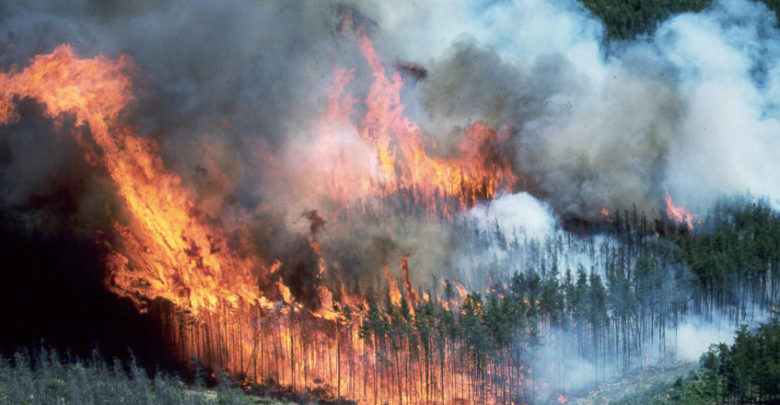 Supplied
SuppliedUniversity of Alberta researchers found short-term exposure to smoke during the Fort McMurray wildfires has had lasting effects on the lung function of RCMP officers.
Paige Lacy, professor of medicine at the University of Alberta and research director of Alberta Respiratory Center, got the opportunity to study the effect of smoke exposure from the 2016 Fort McMurray wildfires when Dr. Lyle Melenka from Synergy Respiratory and Cardiac Care approached her for collaboration on performing screening on Royal Canadian Mounted Police (RCMP) officers who were deployed to Fort McMurray.
Professor Lacy detailed that the Chief Medical Officer of the RCMP approached Dr. Melenka to conduct a screening, because officers were experiencing symptoms such as coughing, wheezing, and difficulty sleeping through the night due to coughing.
After analyzing the data from the screening process, the researchers found significant changes in the small airways due to short-term exposure to smoke. These changes were seen in the officers who reported to the clinic within three months of exposure to wildfires.
However, officers who reported to the clinic more than three months after exposure did not exhibit significant effects on their lungs.
“We can hypothesize that maybe they improve over time, but we couldn’t make that conclusion because we didn’t have a follow-up on the officers,” Lacy said. “It was a cross-sectional study so the officers only got one visit each, and because of that it was difficult to determine if the condition of the lungs improved over time.”
According to Lacy, it is important to note that first responders, specifically RCMP officers, had inconsistency with mask and respiratory fittings during the wildfires.
“Some masks were well fitted, some were loose, while some did not wear a mask at all. This inconsistency is probably what resulted in respiratory symptoms,” Lacy added.
Going forward, Lacy predicted an increase of wildfires in Alberta as a result of climate change. She noted that forest management should be implemented carefully, and suggested this could be accomplished by keeping track of the moisture content in the forest and monitoring increasingly dry areas.
“Stationing staff at the areas that are becoming dry can be useful as they can help put out wildfires quickly to prevent spreading,” Lacy advised.
In addition, Lacy stated that it is extremely important for first responders, such as RCMP officers, to be properly fitted for masks — and that masks, respiratory fittings, and PPE should be strictly enforced.
She advised surveillance systems be implemented at locations that officers are deployed in to continuously monitor their health and check in with them at least once a year.




